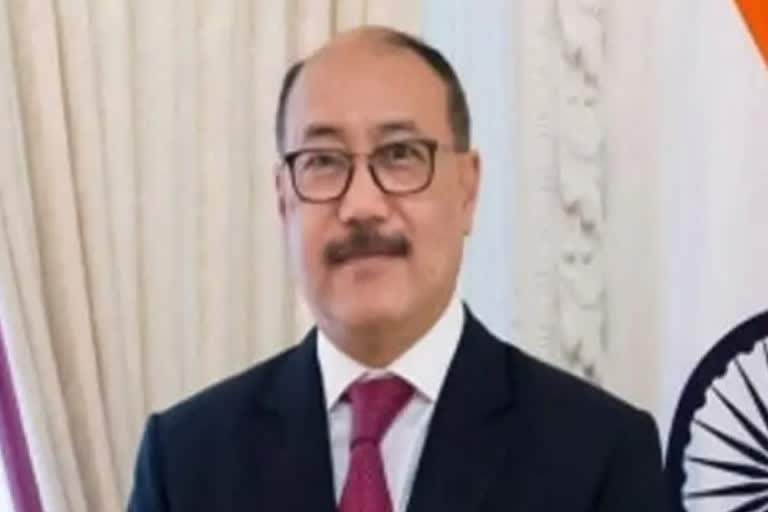New Delhi: India's foreign secretary Harsh V Shringla on Monday said BIMSTEC (Bay of Bengal Initiative for Multi-Sectoral Technical and Economic Cooperation) is a powerful engine of economic growth.
Addressing the International Symposium on “BIMSTEC: A Vehicle for Growth and Development” organized by ISCS Kolkata, Shringla said, "with 21.7% of the world population and combined GDP of US$ 3.8 trillion, BIMSTEC is a powerful engine of economic growth. During the last decade, the region has registered a compound annual growth rate (GDP growth) of 6.1%. We should collectively strive to surpass this growth rate in the current decade".
"The social and cultural linkages among people in the BIMSTEC region that began over two millennia need no introduction. As Prime Minister Narendra Modi said in his message on the occasion of the 24th BIMSTEC Day, "the people of BIMSTEC are bound by shared history and age-old cultural and civilizational linkages", he added.
He underlined that the theme of the Symposium, "BIMSTEC: A Vehicle for Growth and Development” is indeed timely as the countries try to build back after the unprecedented effect of the COVID-19 pandemic on our lives, economies and well-being of our people.
The pandemic has spared none, including the BIMSTEC countries, adding that 'the event allows us to share our experiences and learn best practices from each other in making BIMSTEC a vehicle for growth and development for all of us. BIMSTEC has an added significance for the development of our North Eastern Region'.
"The origins of BIMSTEC and India’s journey as one of its founding members have a contextual rationale. "Neighbourhood First” and "Act East” - both of which are relevant for BIMSTEC – are the cornerstones of India’s foreign policy", Shringla stated.
He said that BIMSTEC is unarguably a crucial link in connecting South and South-East Asia. "As our Prime Minister has noted, "BIMSTEC has emerged as a promising regional grouping to fulfil the common aspiration of its people and serve the shared interests of its Member States", reiterated Harsh Shringla during the event.
Read: NCB commences probe into allegations made by Mumbai cruise drugs case witness
Notably, for a long time, the BIMSTEC process was marked by a high degree of informality, without an institutional structure. It received a major thrust at the BIMSTEC Outreach Summit and Leader’s Retreat in India in October 2016 in which the Leaders agreed to work collectively to make BIMSTEC stronger, more effective and result-oriented.
Various initiatives in the key areas of security and counter-terrorism, connectivity and trade, environment and disaster management, energy and people-to-people contacts were given an impetus, providing much greater visibility to BIMSTEC and its initiatives.
Moreover, the BIMSTEC Member States adapted to the challenges of the pandemic and continued their work virtually under the guidance of the Secretary-General.
As a result, commendable progress has been made in finalizing the BIMSTEC Charter; BIMSTEC Master Plan for Transport Connectivity; BIMSTEC Convention on Mutual Legal Assistance in Criminal Matters; BIMSTEC Technology Transfer Facility (TTF); Cooperation between Diplomatic Academies/Training Institutions; and a template of Memorandum of Association for the future establishment of BIMSTEC Centres/Entities. We look forward to the next BIMSTEC Summit to adopt these documents.
Shringla further informed that the BIMSTEC Member States also agreed to rationalize priority areas of cooperation into seven sectors with each Member State leading one sector.
